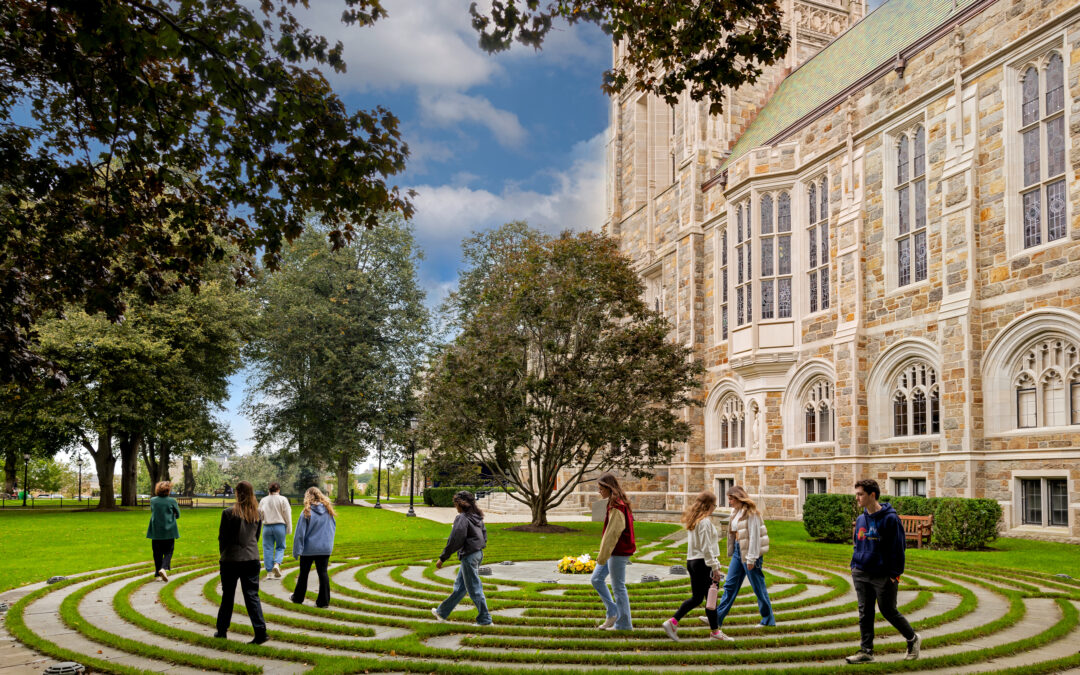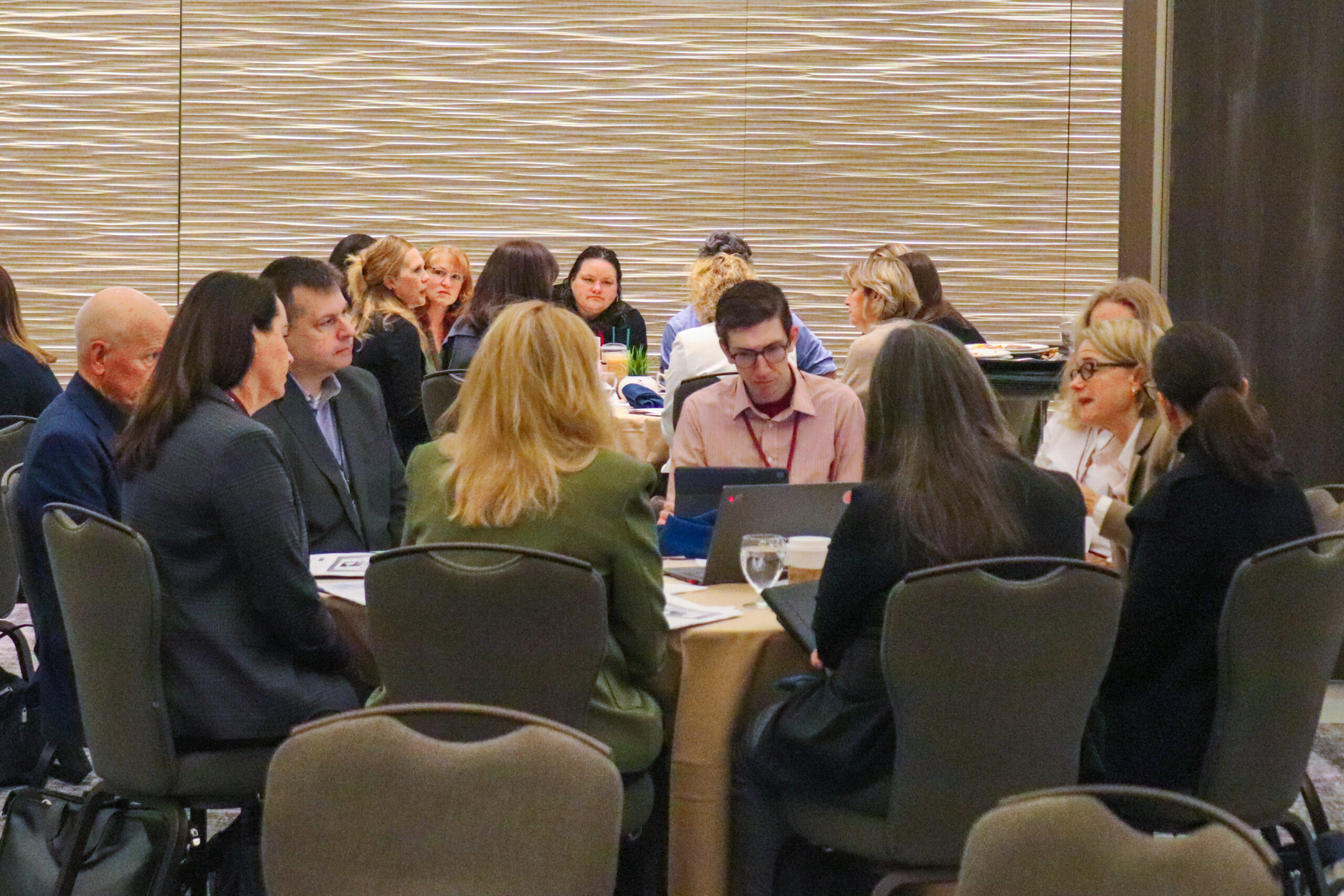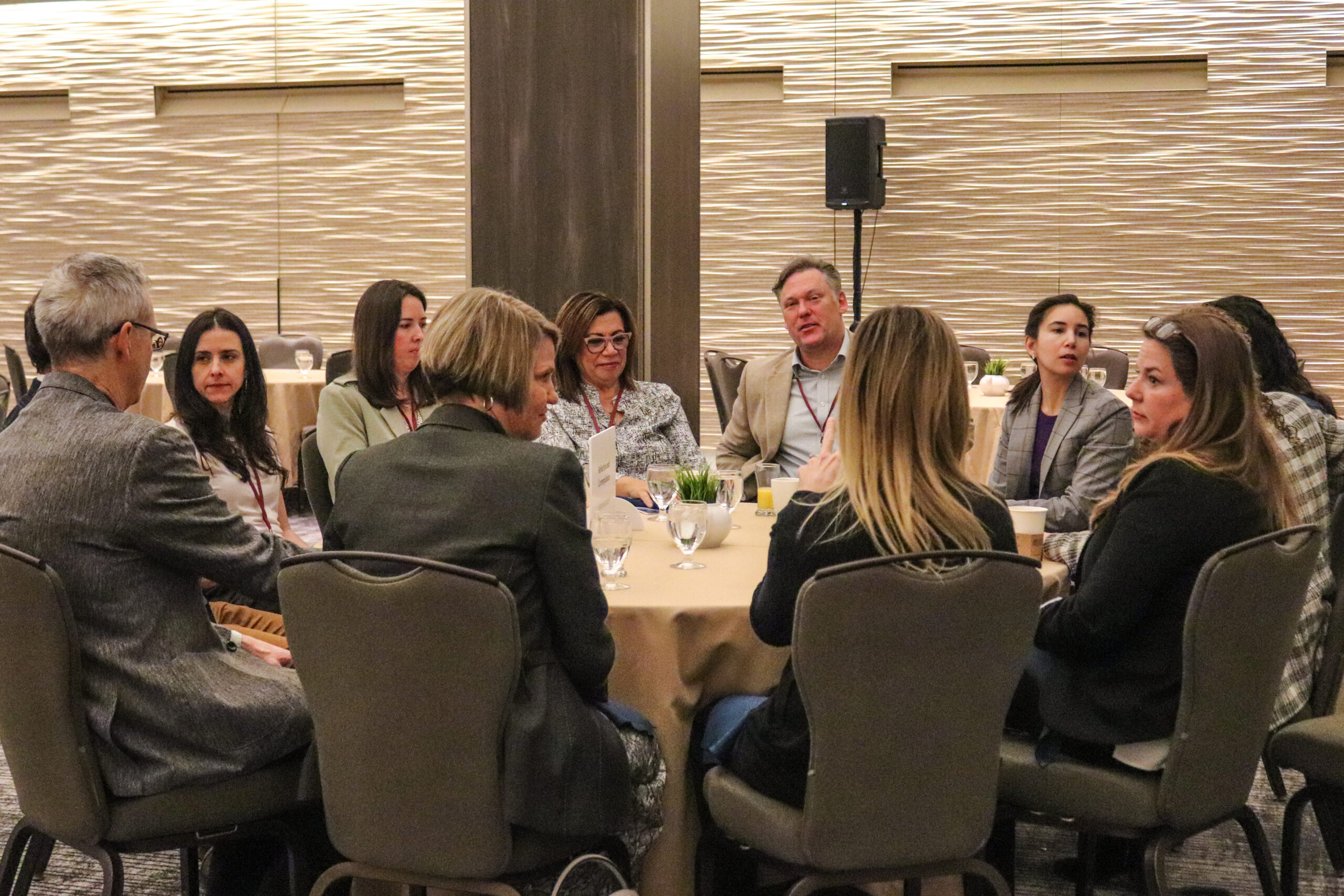
by Samantha Deane | Apr 9, 2024
Formative education is the core of our mission at Boston College’s Lynch School of Education and Human Development (LSEHD). In fact in 2024 in an unprecedented venture in American higher education, BC launched the Department of Formative Education (DFE). The DFE is devoted to the interdisciplinary exploration of questions at once perennial and pressing: How do we educate whole persons for meaningful lives? How do we cultivate community? How do we nurture vision and values? In DFE, faculty conduct groundbreaking research on the cultivation of character, the expansion of imagination, and realization of purpose.
As a pillar of BC’s strategic plan, Boston College has a distinctive culture of formation.
Formative education promotes character development—connecting intellectual, social, ethical, and spiritual dimensions in order to lead students toward purposeful lives—stretching back beyond the founding of Boston College to the origins of the Jesuit order. We do not impose a singular set of values on young people. Instead, we propose to students intellectual, social, ethical, and spiritual challenges that help them develop the knowledge, character strengths, and skills required to discern how to live purposeful lives.
We call our approach to this project, “formative leadership education,” to signal a double aspect: we develop the structures and spaces to support formative professional learning to nurture the capacities of leaders to effect formative character education in schools, districts, and networks.

by Samantha Deane | Mar 27, 2024
As we engage in formative character education at diverse colleges and universities, we need to recognize that the contexts of implementation are both iterative and precarious. To better understand how to steward projects and programs to integrate formative character education into a higher education setting, this group studies the cycles of implementation alongside the challenges and success at diverse institutions.
Grappling with how the whole person can flourish in higher education spaces, and what outcomes this may have on the educational system as a whole requires a keen eye on the cycle of our initiatives.
Questions to be addressed:
-
Is there a universal cycle of implementation of a character education initiative? What are the mile markers?
- Are there distinct challenges or affordances of doing this work in certain contexts? What are these challenges and affordances and which contexts present which hurdles?
-
How can we engage in whole-person education at colleges and universities?
-
Why is engaging with the whole person an important goal for higher education?

by Boston WebGroup | Jan 3, 2024
The Reflection and Contemplation working group meets to study the affordances and challenges of reflection and contemplation for formative character education.
The importance of reflection and dialogue is well-established in the literature on adult learning. Jarvis (1987, 2001) defines reflective learning as the practice of planning, monitoring, and reflecting upon experiences. Brookfield (1995, 2000) points to critical reflection as a cardinal function of adult education. Freire (1970), Daloz (1999), Mezirow (2000), and Blum-DeStefano (2018) all stress the importance of dialogue, of collegial conversation, in sparking reflective, transformative learning.
At the same time, there is the risk that reflective writing and dialogue will become just one more “thing to do” on the list of a busy educational leader. And there may be some forms of reflection—or perhaps here the word contemplation suggests an important difference—that require not active dialogue but some degree of solitude, silence, and stillness. The great critic of our modern, instrumentalist culture of overwork, Josef Pieper (1998), reminds us of the Medieval distinction between ratio and intellectus. “Ratio,” Pieper (p. 11) writes “is the power of discursive thought, of searching and researching, abstracting, refining, and concluding [cf. Latin dis-currere, ‘to run to and fro’].” In intellectus, by contrast, the mind engages in a still and receptive “listening-in to the being of things” (Pieper, p. 11).
This working group is an opportunity to explore the nature and role of reflection in leadership education.
Questions we address in our monthly meetings and on-going book project
-
What are the differences between different forms of reflection?
-
Is reflection-in-action enough or is there a need to “slow down” and “step back”?
-
How do contemplative practices contribute to our formation?
-
How do dialogical interaction and inwardness both contribute to self-knowledge? Is contemplation individualistic and isolating? How might contemplative knowing be supported by and supportive of community?
-
What experiences could inspire leaders to cultivate contemplative forms of knowing? And how do we support leaders to make time for reflective practice?
-
When is a problem-solving mode the correct response to a difficult situation and when is it an expression of a need for distraction? What do we do when stilling the mind produces not an openness to reality but a flood of regrets and obsessive worries?
Facilitator: Scott Parsons, Texas Tech University (scott.parsons@ttu.edu) and Samantha Deane, Boston College (samantha.deane@bc.edu)




